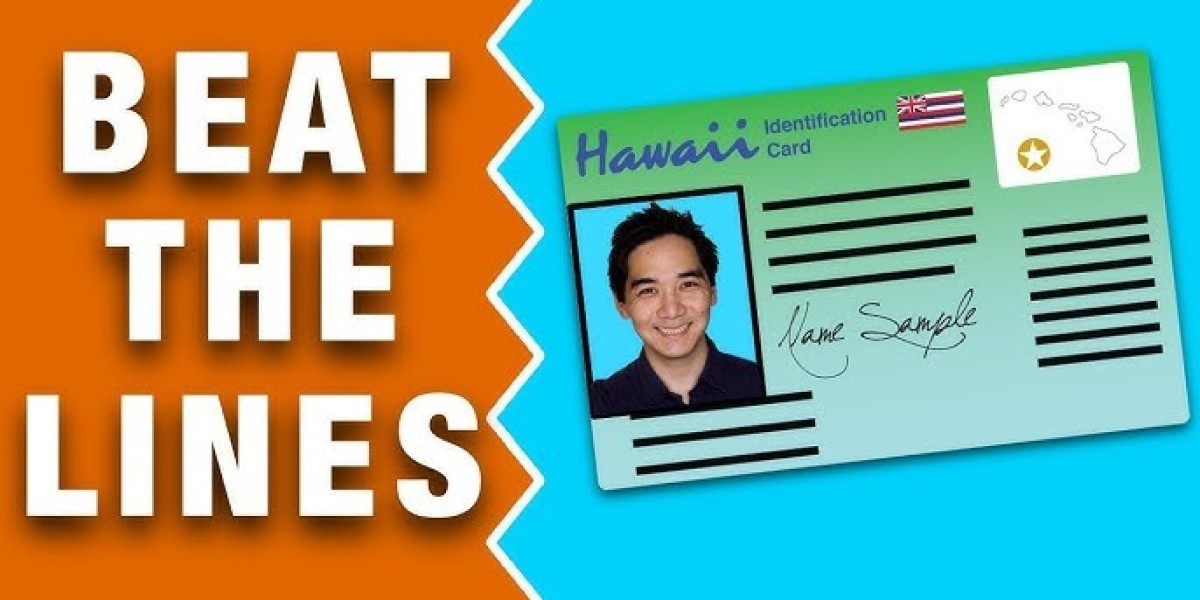A Hawaii ID card is an official government-issued identification document that serves as proof of identity for individuals who do not possess a driver's license. It is issued by the Hawaii Department of Transportation, specifically the Division of Motor Vehicles and Licensing. Here are the key features and eligibility requirements for obtaining a Hawaii ID card:
Key Features:
Personal Information: A Hawaii ID card contains essential personal information such as the holder's full name, photograph, date of birth, gender, and residential address.
Unique Identification Number: Each ID card has a distinct identification number that is used for tracking and verification purposes.
Security Features: Hawaii ID cards incorporate various security features, including holographic overlays, barcodes, and watermarks, to prevent counterfeiting and ensure authenticity.
Signature Panel: There is a designated area on the ID card where the holder can sign their name. This signature can be compared to the one on official documents for additional verification.
Issue and Expiration Dates: The card indicates the date on which it was issued and its expiration date. It's important to note that Hawaii ID cards typically expire after a specified number of years and must be renewed.
Eligibility Requirements:
Residency: To be eligible for a Hawaii ID card, the applicant must be a legal resident of the state. This means they must have a fixed and principal home in Hawaii.
Age: There is no minimum age requirement to obtain a Hawaii ID card. Even minors can apply for an ID card if they do not have a driver's license.
Non-Driving Status: Individuals who hold a valid driver's license in Hawaii or any other state are not eligible to apply for an ID card. The ID card is specifically for non-drivers.
Documentation: Applicants must provide documentation to verify their identity, legal presence, social security number (if applicable), and Hawaii residency. This may include a birth certificate, passport, social security card, and utility bills.
Fees: There is a fee associated with obtaining a Hawaii ID card. The fee varies depending on factors such as the applicant's age and the duration of validity of the ID card.
Application Process: Applicants must visit a Hawaii DMV office in person to apply for an ID card. They will need to fill out an application form, provide the required documentation, and pay the applicable fee.
Renewal: Hawaii ID cards have an expiration date, typically set a few years from the date of issue. To continue using the ID card, holders must renew it before it expires. Renewal may also require updated documentation.
Lost or Stolen Cards: In the event that an ID card is lost or stolen, it is important to report it to the Hawaii DMV as soon as possible. A replacement card can be obtained by following the necessary procedures and paying a replacement fee.
It's worth noting that possessing a valid Hawaii ID card is not only useful for identification purposes but may also be required for various activities such as opening a bank account, accessing certain government services, and more. Therefore, it's crucial for eligible individuals to be aware of the application process and requirements.







